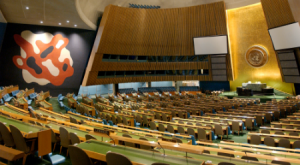The report provides an overview of the application of the concept of intergenerational solidarity across public policy domains, highlighting opportunities and challenges for current and future generations of older persons. The report covers selected work carried out by members of the Inter-Agency Group on Ageing. Key recommendations for consideration by Member States are set out in the concluding section.
Please click on the report link above for the full resolution, which is available in all six UN official languages.
 Welcome to the United Nations
Welcome to the United Nations
 The
The